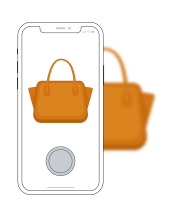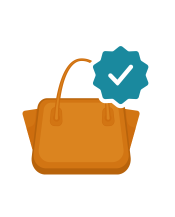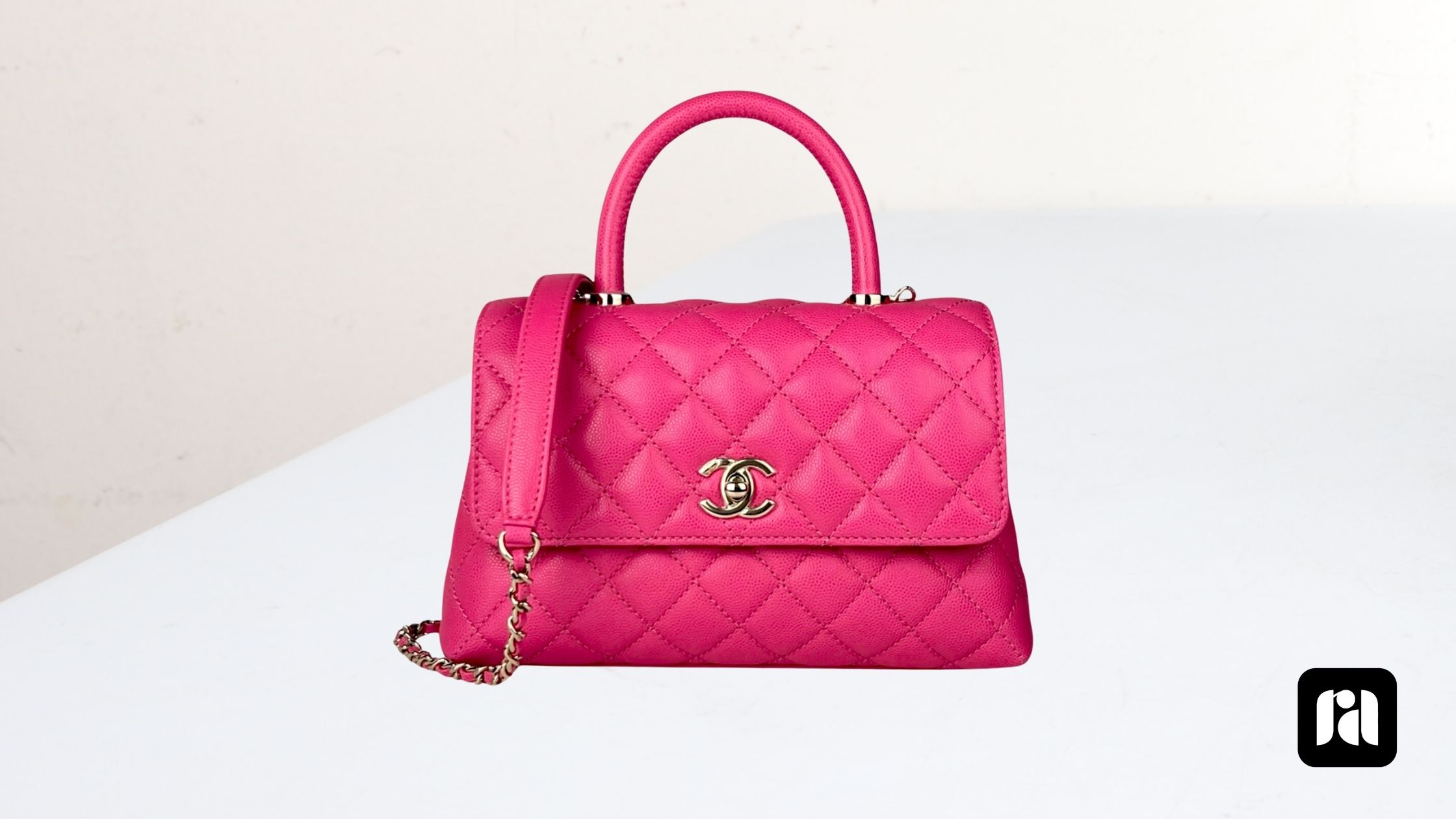The Verdict is In: Chanel Wins Case Against What Goes Around Comes Around
The Verdict Is In: Chanel Wins Case Against What Goes Around Comes Around
WGACA found guilty of using Chanel’s trademarks and brand elements without permission, selling non-authentic and counterfeit goods, and engaging in false advertising.
The verdict is in for the Chanel v. What Goes Around Comes Around (WGACA) trial! A New York Federal jury weighed in favor of Chanel in its case against luxury reseller WGACA, finding that WGACA used Chanel’s trademarks and brand elements without permission, sold non-authentic Chanel products, sold counterfeit items, and engaged in false advertising. The jury voted unanimously on all four counts (Vogue Business). As a result of the verdict, Chanel was awarded $4 million in damages for the unauthorized sale of Chanel handbags with fake trademarks by WGACA (The Fashion Law), noting that the company operated with “reckless disregard” in its use of Chanel trademarks, according to court documents filed (Fashion Dive).
In a statement released on Tuesday, Chanel commented that it “welcomes the ruling, which demonstrates Chanel’s unwavering commitment to protecting consumers and its brand against all false association, trademark infringement and counterfeiting, and false advertising.” They went on to say that “Such infringements hurt consumers and harm the Chanel goodwill and brand, because they are likely to confuse the public as to the nature of the Chanel-branded items they are purchasing,” (Vogue Business). Chanel also noted that “secondhand platforms, when they operate with transparency about the Chanel-branded items they sell and cooperate with law enforcement and Chanel, can help in the fight against counterfeiting,” (The Fashion Law).
In response to the verdict, Seth Weisser, WGACA co-founder, maintains that they did no wrongdoing, and commented that “We are incredibly disappointed with today’s verdict; however, the case is not over. The court has yet to hear post-verdict motions,” (Vogue Business). He continued by saying, “WGACA has always had a rigorous authentication process and has never in the history of the company sold a non-genuine or counterfeit product. Today’s verdict was not about not selling a counterfeit, it was about WGACA selling items which were voided in Chanel’s database. Without any access to this database the resale industry would not know the status of these serial numbers. We continue to stand by our 100 percent authenticity guarantee,” (Vogue Business).
Background on the Case:
Trial for Chanel’s 2018 lawsuit against resale industry pioneer WGACA took place in early January. The lawsuit initially focused on WGACA’s use of Chanel trademarks and references to the French Luxury house in WGACA’s marketing materials. Chanel claimed that WGACA’s marketing deceived consumers into believing Chanel was somehow directly affiliated with WGACA, or that Chanel was somehow authenticating preowned products behind the scenes for WGACA. Specifically highlighted was WGACA’s continuous use of the hashtag #WGACACHANEL, that in 2018 the court later deemed to indeed be an infringement on the trademark and false advertising.
WGACA had refuted that the Chanel trademark was simply used as a classification and Chanel’s claim was an overreaching attempt to ban the legitimate sale of their goods in secondhand markets. What Goes Around Comes Around has been selling pre-owned luxury goods on the secondhand market since 1993 and claims to be “the premier purveyor of the finest luxury vintage accessories and apparel from around the world,” (WGACA). More can be found on WGACA’s Authenticity Guarantee here.
Though part of Chanel’s trademark infringement claims were dismissed on the basis that Chanel could provide no direct evidence that WGACA had created any Chanel official marks themselves, part of the lawsuit was kept, which includes the sale, distribution, or advertising of a counterfeit or other type of infringing mark.
What Goes Around Comes Around was also accused of false advertising through the sale of 12 counterfeit Chanel handbags and of 779 point-of-sale items (ie. Chanel branded display-only products such as mirrors or display trays, which are typically not marked or specifically marked NOT FOR RESALE).
To learn more about the history of this case, read our blog post, 30,000 Stolen Chanel Authenticity Cards Revealed in Chanel v. WGACA Trial.
What Does This Mean for the Secondhand Industry?
While much of the jury portion of the trial was centered around whether WGACA violated federal trademark law by allegedly offering counterfeit or otherwise infringing goods, the case was also focused on how much a brand can determine and enforce how their trademarks are used “and the conditions in which goods bearing those marks are sold. In short: How much control can brands exert over the resale of their products by third parties?” (The Fashion Law).
The recent ruling that favors brands implies that resellers must be extremely cautious in how they promote even genuine products. This includes how they mention brand names, logos, and other brand-related symbols, as well as the wording they use when talking about the authenticity of the products. Basically, resellers are being told that they can’t just freely use another company’s trademarks without consequences, especially if it confuses customers into thinking there is a direct link between the resellers and the brands they are selling products for. Brittany Singh, intellectual property attorney at Lvlup Legal, stated that “This ruling not only establishes boundaries within the luxury resale market but also safeguards consumers against deceptive advertising and counterfeit products,” (Vogue Business).
The ruling is also expected to impact how luxury secondhand retailers verify and authenticate their products, potentially increasing operating costs. This means that platforms selling secondhand items will need to enhance their efforts in confirming the authenticity of items and be more cautious when using third-party trademarks in their promotions. Despite the added expenses, this ruling is seen as a positive development for the luxury resale industry as it is expected to elevate quality standards and diminish the risk of customers purchasing counterfeit or unauthenticated goods. It remains crucial for resellers to ensure that all items they sell are genuinely authenticated vintage pieces.
What’s Next?
This ongoing situation sheds light on how big companies resell products for profit. It will now go to Judge Stanton for the next steps. The involved parties will show proof about fair solutions like giving back profits and stopping certain actions to only the judge. It’s important to mention that Chanel’s victory could affect the discussions happening between Chanel and The RealReal. These talks are currently happening in a separate but similar lawsuit (The Fashion Law).
Real Authentication’s Commitment to Authentication
This case ruling has a huge impact on the luxury resale and authentication industries. Real Authentication will continue to provide individuals, dealers, and global brands with unparalleled confidence and peace of mind by leveraging our deep expertise and years of experience to deliver the most trusted and accurate luxury goods authentication service available.
Resources:
– The Fashion Dive
– The Fashion Law
– Vogue Business
Disclaimer: Real Authentication is a 3rd party authentication service and is in no way affiliated with the brands it services.
About Real Authentication: Real Authentication’s mission is to provide individuals, dealers, and global brands with unparalleled confidence and peace of mind by leveraging our deep expertise and years of experience to deliver the most trusted and accurate luxury goods authentication service available. Follow this blog for more industry news, tips to spot counterfeits, and more! You can also connect with us on social media on Facebook, Instagram, TikTok, and Pinterest.
Need Expert Authentication?
Our user-friendly process lets you receive authentication in as little as 1 hour from anywhere in the world.

1. Upload Your Photos
Simply upload images showing your product—anything from luxury handbags to clothing, shoes, and more.

2. Product is Verified
Two or more expert luxury authenticators typically review each product. Orders stay in your account for future reference. Added layers of AI technology and Quality assurance help to ensure accuracy prior to approval.

3. Get Certification
Instantly receive electronic certification. Upgrade your order at any time to receive official documentation—from Authenticity Cards to Written Statements.


